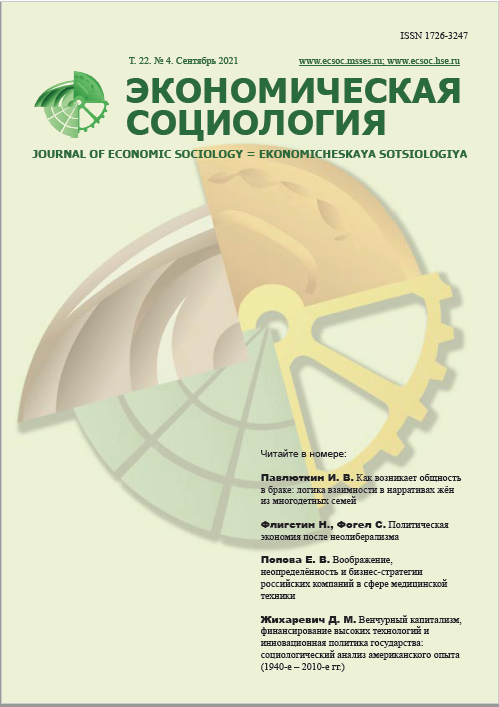Imagination, Uncertainty and Business Strategies of Russian Companies in the Field of Medical Devices
Abstract
High-tech innovation is often understood as creating new worlds and tra¬jectories of development and generating uncertainty. On the basis of 15 interviews with the heads of Russian medical technology companies, the paper presents the different types of uncertainties faced by med-tech entre¬preneurs. Is the lack of exact knowledge about the results of the develop¬ment and implementation of new technologies (a classic type of uncer¬tainty in the innovation sector) perceived by entrepreneurs as a difficulty? Or do they deal with uncertainties of another type, for example, related to the political and economic context in the country? What business models are emerging in the industry for regional companies? What is the role of expectations and the imagination in the work of the company director or R & D engineers? How is this related to the specifics of the health industry? As a theoretical basis, the concepts of uncertainty in the innovation sector, as well as uncertainty associated with the rules of the game set by political and economic institutions, are considered. The strategies of innova¬tive entrepreneurs in conditions of uncertainty are investigated using the concept of the imaginary in the ver¬sion of science and technology studies (STS). This research identifies four business models of hi-tech entre¬preneurs in Russia: Small deal supporters, Revolutionaries, Conformists, and Isolationists. In the development of medical equipment, it is important that the main customers of medical devices in Russia are state-owned hospitals. One of the most winning strategies for Russian entrepreneurs is the use of ambiguity, i.e., to second- guess the agenda set by government agencies and use official rhetoric in negotiations with officials. One might have expected that, especially in such a situation, imaginaries might be a vehicle for innovation. However, uncertainty about rules and ambiguity in political priorities results in an imaginary drama—imaginaries in med-tech companies do not exist, and neither does innovation.













